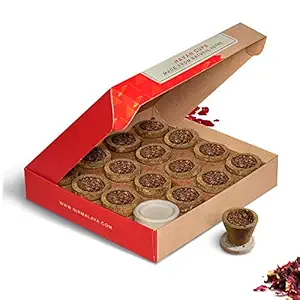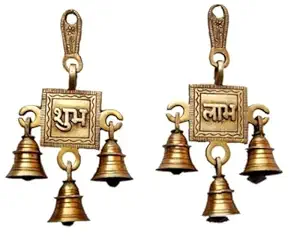दिवाली 2025: तिथि, महत्व, पूजा विधि और उत्सव मार्गदर्शिका
परिचय
दिवाली, जिसे दीपावली भी कहा जाता है, भारत और विश्वभर में मनाया जाने वाला दीपों का त्यौहार है। यह अंधकार पर प्रकाश, बुराई पर अच्छाई और अज्ञान पर ज्ञान की विजय का प्रतीक है। परिवार घर को साफ करते हैं, दीपक जलाते हैं, लक्ष्मी पूजा करते हैं और मिठाइयाँ व उपहार बांटते हैं।
दिवाली 2025 तिथि और समय
-
तारीख: सोमवार, 20 अक्टूबर, 2025
-
तिथि: कार्तिक मास अमावस्या
-
लक्ष्मी पूजा का शुभ मुहूर्त: शाम (स्थान अनुसार समय अलग हो सकता है)
दिवाली का महत्व
-
यह दिन भगवान राम के 14 वर्षों के वनवास के बाद अयोध्या लौटने और रावण पर विजय का प्रतीक है।
-
इस दिन भगवान कृष्ण ने नरकासुर का संहार किया।
-
यह समृद्धि, स्वास्थ्य, ज्ञान और आध्यात्मिक जागरूकता का प्रतीक है।
-
घर और कार्यस्थल को साफ और सजाया जाता है, दीपक जलाकर माँ लक्ष्मी का स्वागत किया जाता है।
दिवाली की कथा
-
पौराणिक कथाओं के अनुसार, दिवाली भगवान राम की वापसी, भगवान कृष्ण की विजय, और माँ लक्ष्मी के आशीर्वाद को सम्मानित करने के लिए मनाई जाती है।
-
दीपक जलाना अंधकार और अज्ञान को दूर करने का प्रतीक है।
-
भारत के विभिन्न क्षेत्रों में लक्ष्मी पूजा, गोवर्धन पूजा और भाई दूज जैसी विविध कथाएँ जुड़ी हैं।
पूजा विधि
-
घर को साफ करें और रंगोली और दीपक से सजाएँ।
-
माँ लक्ष्मी और भगवान गणेश की मूर्ति या चित्र स्थापित करें।
-
दीपक और अगरबत्ती जलाएँ ताकि वातावरण शुद्ध हो।
-
फल, मिठाई, फूल और सिक्के अर्पित करें।
-
लक्ष्मी स्तोत्र, गणेश मंत्र या अन्य भजन का पाठ करें।
-
शाम को आरती करें और प्रसाद वितरित करें।
-
परिवार और मित्रों के साथ शुभकामनाएँ, उपहार और मिठाइयाँ बाँटें।
भारत में उत्सव
-
उत्तर भारत: घरों में लक्ष्मी पूजा, पटाखे जलाना और उपहारों का आदान-प्रदान।
-
पश्चिम भारत (महाराष्ट्र और गुजरात): रंगोली सजावट, पारिवारिक दावत और मेलों में भागीदारी।
-
दक्षिण भारत: दीप जलाना, विशेष मिठाई और मंदिर पूजा।
-
सामान्य: दिवाली का समय परिवार के साथ मिलन, खरीदारी, उत्सव और खुशियाँ बांटने का होता है।
दिवाली 2025 शुभकामनाएँ
-
“यह दिवाली आपके जीवन में खुशियाँ, समृद्धि और स्वास्थ्य लाए। दिवाली 2025 की शुभकामनाएँ!”
-
“प्रकाश के इस त्यौहार को खुशियों, प्यार और माँ लक्ष्मी के आशीर्वाद के साथ मनाएँ।”
Introduction to Diwali
What is Diwali?
Diwali also known as Deepavali is a festival celebrated across India and worldwide. It symbolizes the victory of light over darkness good over evil and knowledge over ignorance. Families clean their homes light lamps perform Lakshmi Puja and share sweets and gifts.
When is Diwali 2025?
In 2025 Diwali will be observed on Monday October 20. The date corresponds to the Amavasya (new moon) night of the Kartika month in the Hindu lunar calendar.
Significance of Diwali
Diwali marks several significant events in Hindu mythology. It commemorates Lord Rama's return to Ayodhya after 14 years of exile Lord Krishna's victory over Narakasura and the worship of Goddess Lakshmi the goddess of wealth and prosperity.
Regional Celebrations
While Diwali is celebrated nationwide regional customs vary. In Maharashtra it's known as 'Chhoti Diwali' and involves lighting lamps and bursting crackers. In North India it's celebrated with grand Lakshmi Puja and community gatherings.
Mythological Stories
According to Hindu mythology Diwali celebrates the return of Lord Rama to Ayodhya after defeating Ravana. It also honors Lord Krishna's triumph over Narakasura and the blessings of Goddess Lakshmi.
Puja Vidhi and Rituals
Preparing for Diwali
Purify and clean the home before the puja. Set up an altar with idols or pictures of Goddess Lakshmi and Lord Ganesha. Decorate with flowers rangoli and diyas to create an auspicious environment for the rituals.
Essential Puja Items
Items required include flowers incense sticks turmeric kumkum sweets diya (oil lamp) coins and offerings like fruits and dry fruits. These items are essential for performing Diwali rituals with devotion.
Performing the Puja
Light the diya and offer prayers to Goddess Lakshmi and Lord Ganesha. Recite mantras and shlokas seeking prosperity health and overall well-being for the family.
Lighting Diyas and Crackers
Light diyas in every corner of the home and compound to ward off negative energies. Bursting crackers is a traditional practice symbolizing joy and celebration while driving away evil spirits.
Offering Prasad
Prepare and offer prasad like sweets fruits and dry fruits to the deities. Distribute prasad among family members and neighbors fostering a sense of community and sharing divine blessings.
Significance and Benefits
Spiritual Significance
Diwali emphasizes the victory of righteousness over evil. Devotees engage in prayers fasting and rituals to strengthen their spiritual consciousness and invite divine protection.
Health Benefits
Observing Diwali rituals including fasting and cleanliness promotes physical and mental well-being. The night-long vigilance and disciplined practices encourage a healthy lifestyle.
Wealth and Prosperity
It is believed that worshipping Goddess Lakshmi and following the rituals bring prosperity wealth and abundance into one’s life. Lighting lamps symbolizes attracting positive energy and fortune.
Protection from Negativity
Performing puja and lighting diyas on Diwali is said to ward off evil forces and negative energies. The festival ensures safety health and well-being for the household.
Community Bonding
Diwali strengthens community ties as families friends and neighbors come together to celebrate. Sharing sweets participating in prayers and collective festivities reinforce social bonds.
Conclusion and Tips
Planning the Celebration
Plan Diwali celebrations by cleaning the house gathering puja items and arranging the lighting of diyas and distribution of prasad to ensure a smooth and meaningful observance.
Engaging Family Members
Involve family members in decorating performing puja and distributing prasad. This encourages participation and strengthens family and community bonds during the festival.
Staying Vigilant During Diwali
Stay awake during the evening rituals and prayers to honor Goddess Lakshmi and Lord Ganesha. Participation in jagran or devotional activities enhances spiritual experience.
Sharing Prasad and Joy
Share prasad and festive treats with family friends and neighbors. This act of sharing spreads happiness blessings and fosters community harmony.
Reflecting on the Festival's Significance
Take time to reflect on the cultural spiritual and social importance of Diwali. Understanding its deeper meaning enhances devotion and personal growth during the festival.
Diwali also known as Deepavali is a festival celebrated across India and worldwide. It symbolizes the victory of light over darkness good over evil and knowledge over ignorance. Families clean their homes light lamps perform Lakshmi Puja and share sweets and gifts.
In 2025 Diwali will be observed on Monday October 20. The date corresponds to the Amavasya (new moon) night of the Kartika month in the Hindu lunar calendar.
Diwali marks several significant events in Hindu mythology. It commemorates Lord Rama's return to Ayodhya after 14 years of exile Lord Krishna's victory over Narakasura and the worship of Goddess Lakshmi the goddess of wealth and prosperity.
While Diwali is celebrated nationwide regional customs vary. In Maharashtra it's known as 'Chhoti Diwali' and involves lighting lamps and bursting crackers. In North India it's celebrated with grand Lakshmi Puja and community gatherings.
According to Hindu mythology Diwali celebrates the return of Lord Rama to Ayodhya after defeating Ravana. It also honors Lord Krishna's triumph over Narakasura and the blessings of Goddess Lakshmi.
Purify and clean the home before the puja. Set up an altar with idols or pictures of Goddess Lakshmi and Lord Ganesha. Decorate with flowers rangoli and diyas to create an auspicious environment for the rituals.
Items required include flowers incense sticks turmeric kumkum sweets diya (oil lamp) coins and offerings like fruits and dry fruits. These items are essential for performing Diwali rituals with devotion.
Light the diya and offer prayers to Goddess Lakshmi and Lord Ganesha. Recite mantras and shlokas seeking prosperity health and overall well-being for the family.
Light diyas in every corner of the home and compound to ward off negative energies. Bursting crackers is a traditional practice symbolizing joy and celebration while driving away evil spirits.
Prepare and offer prasad like sweets fruits and dry fruits to the deities. Distribute prasad among family members and neighbors fostering a sense of community and sharing divine blessings.
Diwali emphasizes the victory of righteousness over evil. Devotees engage in prayers fasting and rituals to strengthen their spiritual consciousness and invite divine protection.
Observing Diwali rituals including fasting and cleanliness promotes physical and mental well-being. The night-long vigilance and disciplined practices encourage a healthy lifestyle.
It is believed that worshipping Goddess Lakshmi and following the rituals bring prosperity wealth and abundance into one’s life. Lighting lamps symbolizes attracting positive energy and fortune.
Performing puja and lighting diyas on Diwali is said to ward off evil forces and negative energies. The festival ensures safety health and well-being for the household.
Diwali strengthens community ties as families friends and neighbors come together to celebrate. Sharing sweets participating in prayers and collective festivities reinforce social bonds.
Plan Diwali celebrations by cleaning the house gathering puja items and arranging the lighting of diyas and distribution of prasad to ensure a smooth and meaningful observance.
Involve family members in decorating performing puja and distributing prasad. This encourages participation and strengthens family and community bonds during the festival.
Stay awake during the evening rituals and prayers to honor Goddess Lakshmi and Lord Ganesha. Participation in jagran or devotional activities enhances spiritual experience.
Share prasad and festive treats with family friends and neighbors. This act of sharing spreads happiness blessings and fosters community harmony.
Take time to reflect on the cultural spiritual and social importance of Diwali. Understanding its deeper meaning enhances devotion and personal growth during the festival.


